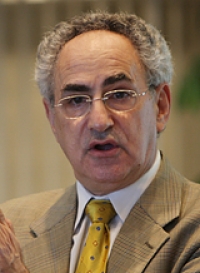David Zweig (Ph.D., University of Michigan, 1983) is Professor Emeritus, Division of Social Science, HKUST and Director, Transnational China Consulting Limited. He is an Adjunct Professor, School of Social Sciences and Humanities, National University of Defence Technology, Changsha, Hunan, and Vice-President of the Center on China’s Globalization (Beijing). He was a Postdoctoral Fellow at Harvard University in 1984-86. He has lived in Hong Kong since 1996 and was a fulltime faculty member at HKUST for 25 years.
Dr. Zweig studied in Beijing in 1974-1976 and did field research in rural China in 1980-1981 and 1986. In 1991-92 and 1997, he did field research on China’s “opening to the outside world.” Since 1991, he has surveyed and interviewed academics, scientists, entrepreneurs, and employees who returned from studying abroad, and Mainland-born Chinese working overseas. In June 2012, he gave Li Yuanchao, then head of the Organization Department of the Chinese Communist Party, a critical evaluation of the CCP’s Thousand Talents Plan.
He is the author or editor of ten books, including Internationalizing China: domestic interests and global linkages (2002) and Sino-U.S. Energy Triangles: Resource Diplomacy under Hegemony (2016). “’The best are yet to come’: State programs, domestic resistance and reverse migration of high-level talent to China,” appeared in the Journal of Contemporary China (Sept. 2020), and in May 2020, his report, America Challenges China’s National Talent Programs (with Kang Siqin), was published by the Center for Strategic and International Studies in Washington, DC. He is a Contributing Writer to the South China Morning Post.
He has two online classes registered with COURSERA, one on domestic Chinese politics and one on China and the World, where (as of August 2020), he had taught over 21,000 students.

